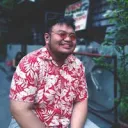Our favourite places to stay on this sleepy Cebu island.
Street Art in the Philippines: 10 Spots That Tell Stories and Expressions
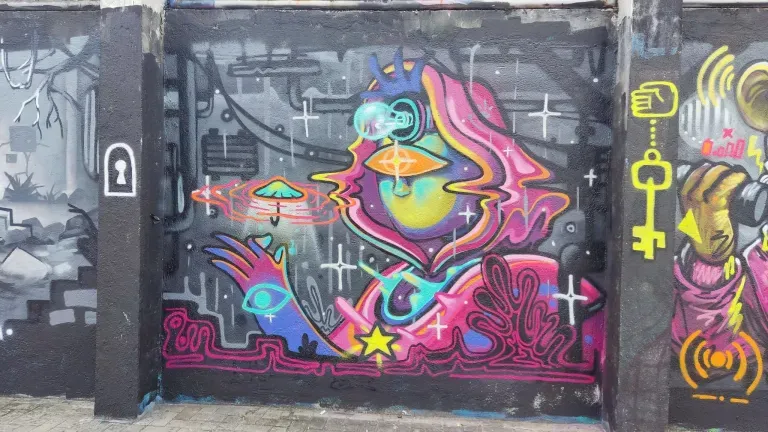
So many expressions or stories are told through street art in the Philippines. Showcased on walls as canvases, these works of art are naturally bold and brash. As these creations inspire more artists to realise their vision, the community that supports their work grows just as fast. If you want to see these urban galleries, here are some local destinations that keep street art in the Philippines alive and thriving.
Also read: Support #artph: 18 Young Filipino Illustrators to Commission for Portraits!
Where to find stories and expressions from street art in the Philippines
1. Nagtahan Bridge
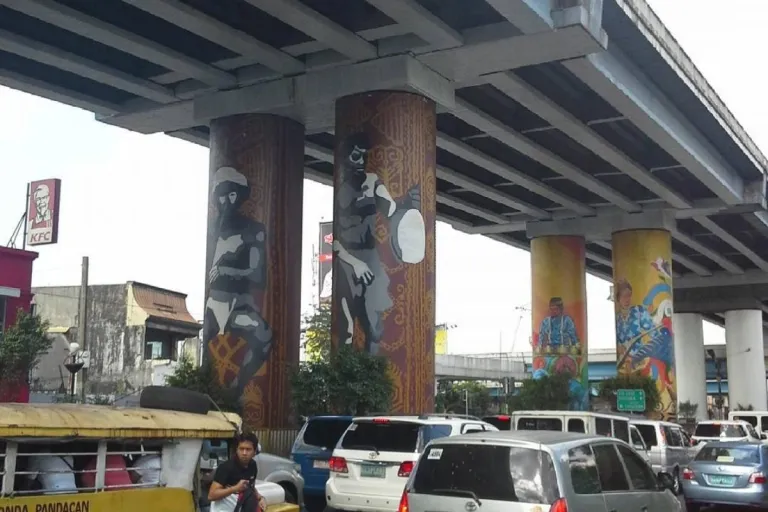
In 2013, the Metro Manila Development Authority (MMDA), in partnership with the National Commission for Culture and the Arts (NCCA), commissioned renowned Filipino muralist AG Saño to draw over the mighty cylindrical structures of Nagtahan Bridge. More than an eyeful in terms of scale and detail, the paintings have become an integral part of the structure.
The idea is certainly inspired. Famous Filipino heroes such as Rajah Sulayman and Andres Bonifacio are immortalised on the concrete pillars that hold up the bridge. The placement has always left an impression on me; they seem to say that these heroes are the ones that hold the bridge firm and strong. Evidently, it is a sight to behold, even when you’re just passing under the bridge. What more if you get to really observe its details?
2. Bonifacio Global City
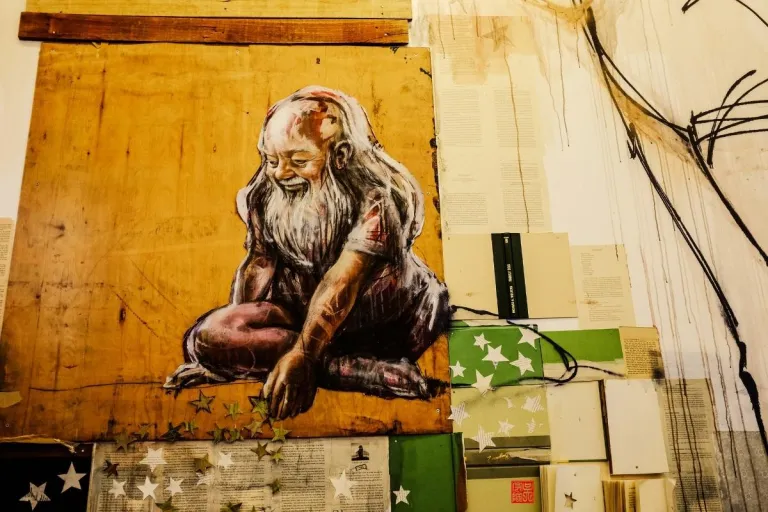
Whether you’re looking to dine or shop in its open-air malls, Bonifacio Global City (BGC) lets your eyes feast on undeniably beautiful murals. You can find street art in BGC almost everywhere, with skyscraper walls painted with commissioned art by both local and international artists. They take inspiration from a diverse range of subjects, styles, and themes. From experimental works to traditional styles to doodles and even promotions for Netflix shows, the murals in BGC will have a little something for everyone.
3. Maginhawa Street
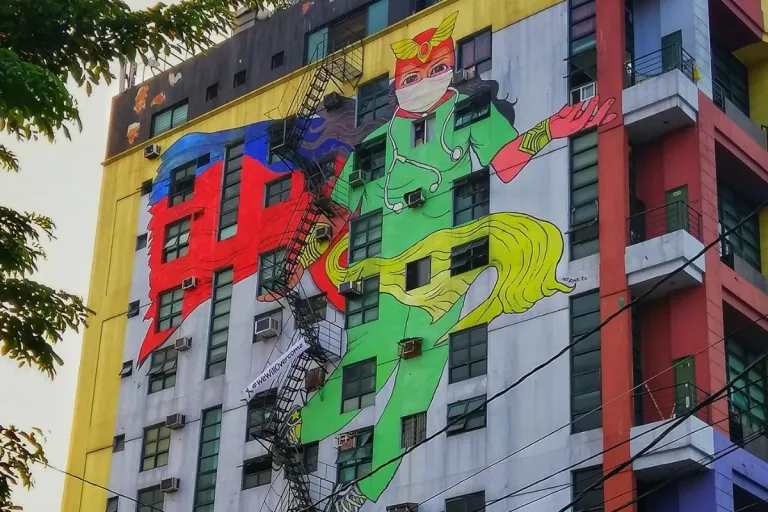
Ever the sanctuary for creatives, Maginhawa Street widely welcomes passionate artists with open arms. Almost every food hub and bar have works of art painted on their walls and fences. Even different areas of the food street are adorned with provocative and engaging artwork. So the next time you’re looking for somewhere to eat in Maginhawa, expect your tummy and eyes to have their fill!
During the height of the pandemic, a condominium in the famous street lent itself to renowned muralist AG Saño for a piece to celebrate the bravery and dedication of COVID-19 frontliners. The piece, made in cooperation with artist collective Art Attack, depicts Pinoy comic book superheroes Darna and Captain Barbell with scrubs and swab kits, aiming to inspire frontliners to keep fighting the virus.
4. Taft Avenue
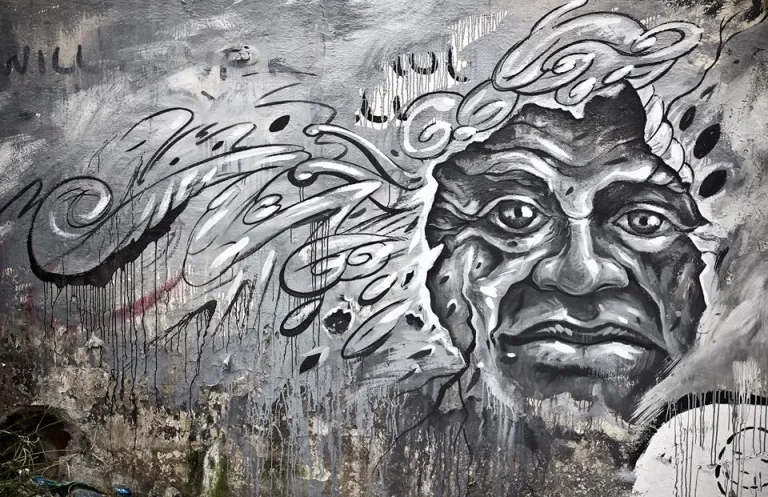
It may not be as obvious today, but Taft Avenue was once known as a hub for graffiti art in the Philippines. Try walking from Pedro Gil to Vito Cruz, and you are bound to still see some murals. One thing is for sure, Taft Avenue continues to lend itself to unbridled artistry for street art in the Philippines.
5. Poblacion
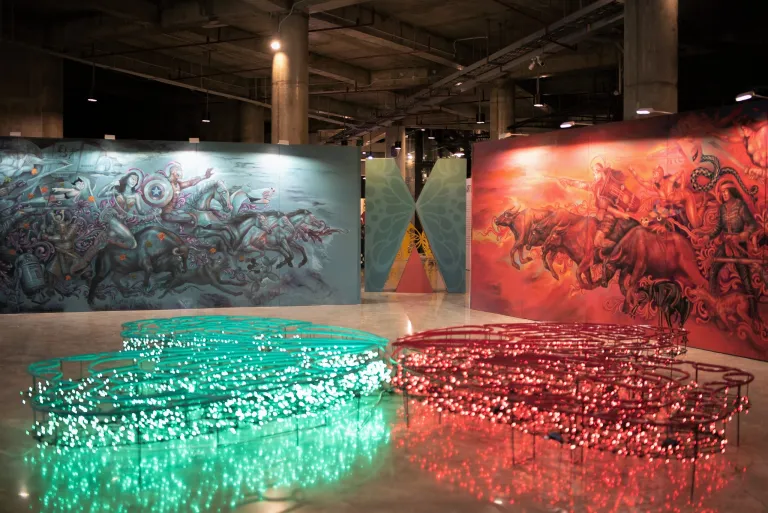
Like Maginhawa, Poblacion Street in Makati has become another go-to bar and food centre for weekend warriors. And again, like Maginhawa Street, it has also become a crucible for creatives who bravely take on the district and make its walls their own canvas. Its growth is fascinating to observe and you can enjoy it on a night with good food and drinks.
6. U.P. Town Center
From its interiors to its exteriors, U.P. Town Center is abundant in visions and artworks from various perspectives — aside from its walls, its ceilings also have murals. Members of the UP Graphic (Graphic Illustration Collaborate), an organisation based in the College of Fine Arts in the University of the Philippines – Diliman (UP Diliman), take credit for these vibrant artworks.
7. UP Diliman
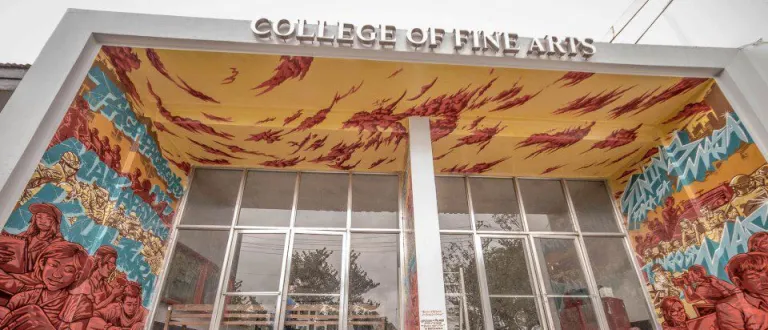
The state university deserves a lot of recognition for being one of the pioneers of street art in the Philippines. UP Diliman hosts a lot of murals on its building walls; some of their artists even came in from different parts of the country. Their College of Fine Arts building alone boasts impeccable visuals painted on its concrete. Be sure to look out for works from the art collective Gerilya!
8. Marikina
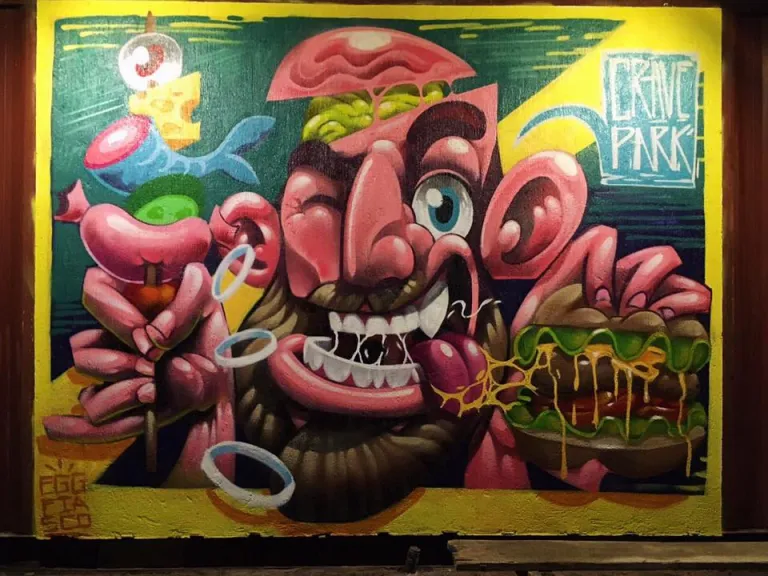
There are two notable places that make Marikina an iconic place for street art in the Philippines. First is Goodfriend Bridge, a wall that stretches to a dead end. It has become a freedom wall and a refuge for artists who want to express themselves on the urban canvas. The second is yet another food hub named Crave Park, which aims to appease both the eyes and stomach with its mouth-watering food selections and visually striking art.
9. Intramuros
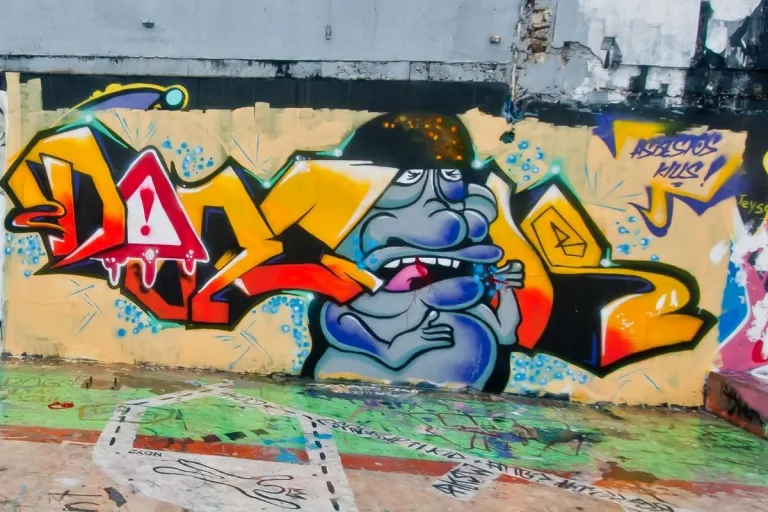
The last time I visited Intramuros, I found clean walls in place of what used to be a haven for street art. I was disappointed to see the change, but it would be illegal to draw over the newly painted walls.
While the haven’s glory days are long gone, the iconic Bakunawa and Minokawa, also made by Gerilya, was recently painted over an iconic building in Intramuros. The piece depicts two legendary creatures of Philippine mythology on a grand scale. Maybe it’s high time that the Walled City of Manila had a resurgence of street art
Also read: DIY Walking Tour in the Walled City of Intramuros: Top 8 Attractions to Visit
10. Baguio City
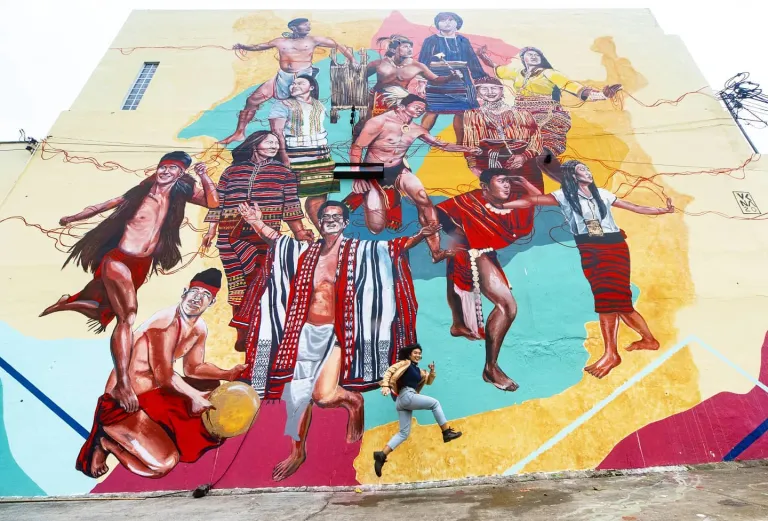
The Summer Capital of the Philippines is a timeless beauty; now with street art in the Philippines becoming popular, Baguio just became a lot cooler, literally and figuratively. Most muralists in Baguio celebrate the history and culture of the region. All of their pieces are festive, colourful, and most importantly, evocative.
Also read: Modeka Art: How This Art Gallery Is Thriving Amid the Pandemic
With street art in the Philippines growing at such an exponential rate, it seems that it won’t be slowing down soon. More so since these expressions of art are not just creative endeavours, but also reflections of what state society is in. Maybe it’s why these painted artworks fade over time. The movement makes room for the future to exist, and more importantly, artists inherit a platform.
Featured image: No Future Foundation | Official Facebook Page
Published at
About Author
Aldous Vince Cabildo
Subscribe our Newsletter
Get our weekly tips and travel news!
Recommended Articles
10 Bantayan Island Resorts, Hotels, and Rentals for Your Tropical Escape 14 Best Credit Cards for Travel in the Philippines The only plastic we need for travel.
10 Best Mountain Cafes in the Philippines for Your Peak Coffee Experience Coffee date on the mountains, anyone?
10 Fairytale Castles In Europe Filipinos Need To See! Permission to feel like royalty even for a day?!
10 Family Outing Ideas in Metro Manila Under ₱500 Looking for a weekend bonding with the family under ₱500? Head to these places, pronto!
Latest Articles
Dingalan Travel Guide: Nature Spots to Discover Now Underrated coastal gem in Aurora
What to Eat in Bicol: Iconic Dishes and Treats, and Unique Pasalubong You’ll Love Spice up your foodie adventure with iconic Bicol dishes and must-try pasalubong!
Top Travel Trends in the Philippines for 2025 New spots, tips, and trends
New UK Adventure Park to Visit in Devon and Cornwall Fun countryside escape near London
Ultimate Camarines Norte Travel Guide: Waterfalls, Beaches, and More From surfing to secret waterfalls, Camarines Norte is your next escape!

